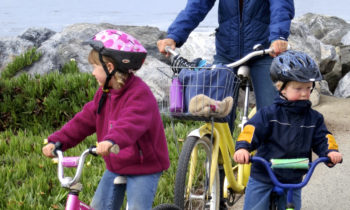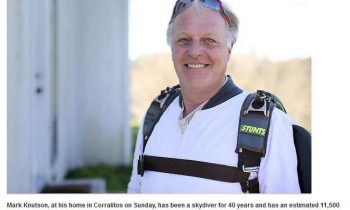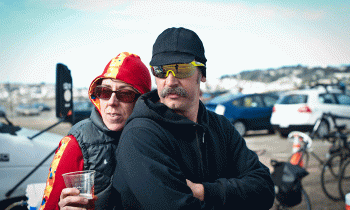September 30, 2004
For MedicinePlanet
By Karen Kefauver
You won’t catch Celeste Faraola doing a Front Flip (a kind of forward no-hands cartwheel) or a Mick Twist (add a 180-degree turn to a front flip) when she hits the slopes with her snowboard this winter.
She won’t compete in the 2001 X Games in Vermont and she doesn’t consider herself an extreme snowboarder. But the 30-year-old snowboarder is an avid practitioner and fan of the growing sport.
Even though she is not performing death-defying stunts, Faraola, for the first time in nearly a decade, is considering wearing a helmet this season while she pursues her passion on the slopes. She is not alone: Increasing numbers of snowboarders are opting to protect their heads, as it becomes apparent that, compared to skiing, snowboarding is extreme — extremely productive of injuries in general, and head injuries in particular.
According to the U.S. Ski and Snowboard industry retail report from 2000, last year’s helmet sales topped a half a million, reflecting a 77 percent increase over the previous season’s sales.
Why Snowboard Instead of Ski?
Daryl Price, a product marketing manager at Giro Sport Design, a leading manufacturer of bike and snow helmets, has witnessed that increase in demand for snowboard helmets. The second largest supplier of snow helmets, Giro tries to appeal to snowboarders by providing a helmet blending function and fashion.
Both “ski and snowboard people have realized the value of wearing a helmet,” said Price. “They say ‘Why wouldn’t you wear one snowboarding or skiing when you wear one on your bike?’”
The use of helmets is more pronounced in snowboarding than in skiing, Price observed. “People who snowboard have more of a mountain biking or snowboard background where they have worn helmets before. It’s more of a natural transition for them to wear helmets on the slopes. Skiers come from all sorts of backgrounds.”
A California native, Faraola has been snowboarding for seven years and hasn’t returned to skiing even though she grew up skiing with her family.
“I felt I had reached the limit of my ability in skiing. I am more comfortable with snowboarding, the equipment, the clothing,” said Faraola. “There are no poles. I feel more free.”


